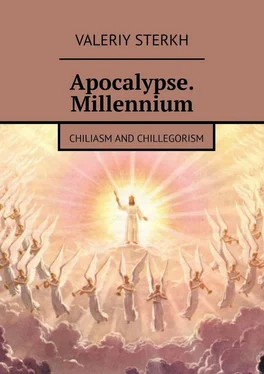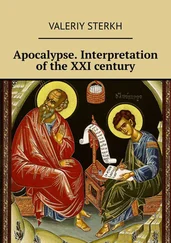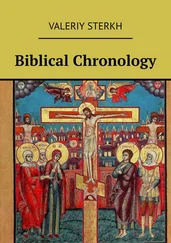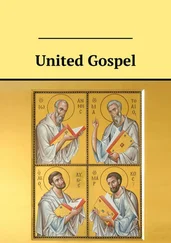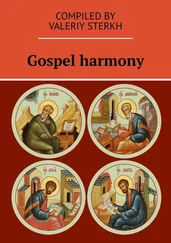Valeriy Sterkh - Apocalypse. Millennium. Chiliasm and Chillegorism
Здесь есть возможность читать онлайн «Valeriy Sterkh - Apocalypse. Millennium. Chiliasm and Chillegorism» — ознакомительный отрывок электронной книги совершенно бесплатно, а после прочтения отрывка купить полную версию. В некоторых случаях можно слушать аудио, скачать через торрент в формате fb2 и присутствует краткое содержание. ISBN: , Жанр: Религиозная литература, Критика, Публицистика, Религиоведение, на английском языке. Описание произведения, (предисловие) а так же отзывы посетителей доступны на портале библиотеки ЛибКат.
- Название:Apocalypse. Millennium. Chiliasm and Chillegorism
- Автор:
- Жанр:
- Год:неизвестен
- ISBN:9785449871831
- Рейтинг книги:4 / 5. Голосов: 1
-
Избранное:Добавить в избранное
- Отзывы:
-
Ваша оценка:
- 80
- 1
- 2
- 3
- 4
- 5
Apocalypse. Millennium. Chiliasm and Chillegorism: краткое содержание, описание и аннотация
Предлагаем к чтению аннотацию, описание, краткое содержание или предисловие (зависит от того, что написал сам автор книги «Apocalypse. Millennium. Chiliasm and Chillegorism»). Если вы не нашли необходимую информацию о книге — напишите в комментариях, мы постараемся отыскать её.
Apocalypse. Millennium. Chiliasm and Chillegorism — читать онлайн ознакомительный отрывок
Ниже представлен текст книги, разбитый по страницам. Система сохранения места последней прочитанной страницы, позволяет с удобством читать онлайн бесплатно книгу «Apocalypse. Millennium. Chiliasm and Chillegorism», без необходимости каждый раз заново искать на чём Вы остановились. Поставьте закладку, и сможете в любой момент перейти на страницу, на которой закончили чтение.
Интервал:
Закладка:
Besides, at that time an idea was widely spread that the first coming of Christ had taken place about the year 5500 from the Creation of the world. It was shared by St. Hippolytus of Rome (Commentary on the book of Daniel, 4, 23—24), Sextus Julius Africanus (Chronographiai, fragment 18). We can also find traces of it in the apocryphal gospel of Nicodemus:
“Then Seth said, having approached the holy prophets: “When I, Seth, prayed to the Lord at the gates of Paradise, Michael, the archangel of the Lord, closed them, and an angel appeared to me saying: “I am sent from the Lord; I have been given charge over the body of your father. Therefore, I say unto you, Seth: do not labor with tears praying and asking for the balm of the tree of mercy to anoint your father Adam’s ailed body. For according to some law, you will only be able to get it in the end times, when 5500 years have been fulfilled (from the creation of the world) [in some manuscripts 5505 or 5555]. Then, the beloved Son of God, Christ, will appear on earth to restore the body of Adam and to raise the dead. And He will come to the river Jordan to be baptized, and when He has come out of the waters of the Jordan, He will anoint all those who believe unto him with the oil of His mercy, and the oil of His mercy will make one born of water and Spirit unto eternal life. Then, having come down to earth, the beloved Son of God, Christ, will take your father to Paradise and the tree of mercy” (Gospel of Nicodemus, chapter 19).
This view was based on the correlation between the birth of Adam some time in the course of the sixth day [Gen 1:26—31] and the coming of the new Adam (i.e. Christ) in the middle of the sixth millennium.
In these chronological calculations, the beginning of the events related to the last days would fall about 500 years after Christ. This was one of the reasons why Chillegorism was not prevalent in the first few centuries of Christianity. In the Apocalypse, Satan’s imprisonment lasts for 1000 years [Rev 20:2—3], while the postmillenarists came up with just 500 years. That’s why at that time, premillenarism seemed more reasonable in terms of the existing chronology.
However, in the first few centuries, even chillegorists were expecting the end of the world in 500 NE (from the New Era). They did it even though they were not able to successfully fit the 1000 years of Satan’s imprisonment into the 500 years. It must have been Tychonius Africanus who first found a solution. He suggested that the second half of the sixth millennium should be reckoned as [the seventh (?)] millennium, just like the three days of Jesus’ remaining in the tomb do not constitute three full days (Tychonius Africanus, The Book of the Seven Rules for Studying and Understanding Scripture , Rule 5. Concerning the times).
This idea was then picked up by other chillegorists: St. Jerome of Stridon (The Second edition [by Hieronymus] of “Commentary on the Apocalypse”, St. Victorinus of Petava, on Rev 20:1—3), St. Aurelius Augustine of Hippo (On the City of God, book 20, ch.7), Andreas of Caesarea (Commentary on the Apocalypse, chapter 63).
After 500 NE (from the New Era), it became clear that “more time now has elapsed than what was said concerning the fullness of years, or five hundred years” (Oicumenuis, Commentary on the Apocalypse , Rev 12). Some theologians came to the opinion that 6000 years have not yet passed. They incorporated shorter chronologies from the creation of the world (see, for example, Pr. Boris Kiryanov, Complete Explanation of the Earthly Millennial Kingdom of our Lord , Chapter 6. Concerning chronology). Postmillenarists, on the other hand, had one more reason to expect the end of the world by 1000 NE; there was a corresponding prediction attributed to Pope Sylvester II (who, according to the legend, prevented the Judgement Day from taking place that year by overcoming the devil). After that, the date for the end of the world shifted several times. In Russia, the coming of the Antichrist was set on the year 7000 according to the Byzantine era (1492 NE), and they didn’t even dare to compile Paschal tables beyond this date. However, the predictions did not come true, and gradually Christian theology shifted to the idea that “it is not for you to know the times or the seasons, which the Father hath put in his own power” (Act 1:7). “For yourselves know perfectly that the day of the Lord so cometh as a thief in the night” (1 Thess 5:2).
The idea that the events of the last days will be sudden existed from the very inception of Christianity (Mt 24:42—51, 25:13; Mk 13:32—37; Act 1:4—8; 1 Thess 5:1—10). Despite other opinions, many Church Fathers believed it and passed it on down the centuries (St. Clement of Rome, The Second Epistle to the Corinthians, chapter 12; Apostolic Decrees, 7, 31). Even those who believed that the end of the world would happen by the year 6000 viewed it as an assumption, simultaneously believing in the suddenness of the Lord’s coming (St. Irenaeus of Lyons, Against Heresies , 5, 30, 2; St. Hippolytus of Rome, Commentary on the book of Daniel , 4, 16). Generally speaking, they considered any chronological calculations about the end of the world as an indulgence of human curiosity (St. Hippolytus of Rome, Commentary on the book of Daniel , 4, 22—23).
Section 4. An anthology of the ancient Chiliasm
The author’s note: Initially, I wanted to include in this section not only the anthology of Chiliasm but also a brief overview of the development of these doctrines over time. But due to the limited space, I decided to only give a summary of the most important points.
St. John the Evangelist, the Apostle, one of the 12 (c. 2 – c. 102)
And I saw heaven opened, and behold a white horse; and he that sat upon him was called Faithful and True, and in righteousness he doth judge and make war. His eyes were as a flame of fire, and on his head were many crowns; and he had a name written, that no man knew, but he himself. And he was clothed with a vesture dipped in blood: and his name is called The Word of God. And the armies which were in heaven followed him upon white horses, clothed in fine linen, white and clean. And out of his mouth goeth a sharp sword, that with it he should smite the nations: and he shall rule them with a rod of iron: and he treadeth the winepress of the fierceness and wrath of Almighty God. And he hath on his vesture and on his thigh a name written, KING OF KINGS, AND LORD OF LORDS. And I saw an angel standing in the sun; and he cried with a loud voice, saying to all the fowls that fly in the midst of heaven, Come and gather yourselves together unto the supper of the great God; That ye may eat the flesh of kings, and the flesh of captains, and the flesh of mighty men, and the flesh of horses, and of them that sit on them, and the flesh of all men, both free and bond, both small and great. And I saw the beast, and the kings of the earth, and their armies, gathered together to make war against him that sat on the horse, and against his army. And the beast was taken, and with him the false prophet that wrought miracles before him, with which he deceived them that had received the mark of the beast, and them that worshipped his image. These both were cast alive into a lake of fire burning with brimstone. And the remnant were slain with the sword of him that sat upon the horse, which sword proceeded out of his mouth: and all the fowls were filled with their flesh.
And I saw an angel come down from heaven, having the key of the bottomless pit and a great chain in his hand. And he laid hold on the dragon, that old serpent, which is the Devil, and Satan, and bound him a thousand years, And cast him into the bottomless pit, and shut him up, and set a seal upon him, that he should deceive the nations no more, till the thousand years should be fulfilled: and after that he must be loosed a little season. And I saw thrones, and they sat upon them, and judgment was given unto them: and I saw the souls of them that were beheaded for the witness of Jesus, and for the word of God, and which had not worshipped the beast, neither his image, neither had received his mark upon their foreheads, or in their hands; and they lived and reigned with Christ a thousand years. But the rest of the dead lived not again until the thousand years were finished. This is the first resurrection. Blessed and holy is he that hath part in the first resurrection: on such the second death hath no power, but they shall be priests of God and of Christ, and shall reign with him a thousand years. And when the thousand years are expired, Satan shall be loosed out of his prison, And shall go out to deceive the nations which are in the four quarters of the earth, Gog and Magog, to gather them together to battle: the number of whom is as the sand of the sea. And they went up on the breadth of the earth, and compassed the camp of the saints about, and the beloved city: and fire came down from God out of heaven, and devoured them. And the devil that deceived them was cast into the lake of fire and brimstone, where the beast and the false prophet are, and shall be tormented day and night for ever and ever. And I saw a great white throne, and him that sat on it, from whose face the earth and the heaven fled away; and there was found no place for them. And I saw the dead, small and great, stand before God; and the books were opened: and another book was opened, which is the book of life: and the dead were judged out of those things which were written in the books, according to their works. And the sea gave up the dead which were in it; and death and hell delivered up the dead which were in them: and they were judged every man according to their works. And death and hell were cast into the lake of fire. This is the second death. And whosoever was not found written in the book of life was cast into the lake of fire (Rev 19:11—20:15).
Читать дальшеИнтервал:
Закладка:
Похожие книги на «Apocalypse. Millennium. Chiliasm and Chillegorism»
Представляем Вашему вниманию похожие книги на «Apocalypse. Millennium. Chiliasm and Chillegorism» списком для выбора. Мы отобрали схожую по названию и смыслу литературу в надежде предоставить читателям больше вариантов отыскать новые, интересные, ещё непрочитанные произведения.
Обсуждение, отзывы о книге «Apocalypse. Millennium. Chiliasm and Chillegorism» и просто собственные мнения читателей. Оставьте ваши комментарии, напишите, что Вы думаете о произведении, его смысле или главных героях. Укажите что конкретно понравилось, а что нет, и почему Вы так считаете.
